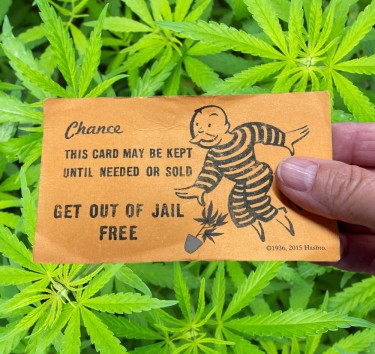
Ganja Theory – Is the Bryn Spejcher Killing a PsyOp?
In a world riddled with complex narratives and covert agendas, the term “PsyOp” or Psychological Operation, has become a critical concept in understanding the manipulation of public perception. Originating from military strategy, PsyOps are operations intended to convey selected information and indicators to audiences, influencing their emotions, motives, objective reasoning, and ultimately, the behavior of governments, organizations, groups, and individuals. The purpose? To induce or reinforce behavior favorable to the originator’s objectives.
Historically, PsyOps have been used in various contexts. During World War II, for instance, false radio broadcasts and leaflets were used to mislead enemy troops. In the Cold War era, the use of media and propaganda to shape political sentiment was rampant. Even in modern times, the internet and social media have become fertile ground for such operations, blurring the lines between truth and manipulation.
However, what happens when the principles of PsyOps infiltrate into everyday narratives, particularly those concerning public health and safety? This brings us to a peculiar case that recently sparked a lightbulb moment in my mind – the story of Bryn Spejcher.
Bryn Spejcher, a woman who brutally murdered her boyfriend Chad O’Melia after allegedly taking a hit from a bong, claimed that cannabis induced a psychotic state leading to the crime. Strangely, her punishment was a mere 100 hours of community service and two years probation, a sentence that’s bewilderingly lenient for such a violent act. Furthermore, the lack of substantial psychiatric evaluation or any prison time for manslaughter raises eyebrows. Instead, Spejcher was sent out to propagate the “ills of cannabis.”
The light sentence and the subsequent narrative shift towards cannabis-induced psychosis seem too orchestrated, too convenient. Could this be a contemporary example of a PsyOp, specifically targeting the public’s perception of cannabis? The modus operandi fits: use a real, tragic event and spin a narrative that serves a broader agenda – in this case, painting cannabis in a negative light.
When one begins to peel back the layers and compare similar stories, a pattern emerges, aligning eerily with tactics previously seen in PsyOps. Are we witnessing a sophisticated and sinister ploy to sway public opinion against cannabis using Spejcher’s case as a vehicle?
Let’s delve deeper into this intriguing possibility and unravel whether the Bryn Spejcher killing is more than just a tragic crime, but a calculated PsyOp with far-reaching implications in the ongoing discourse around cannabis.
The Bryn Spejcher case is an extraordinary tale that not only stirs deep emotions but also invokes a sense of déjà vu for those familiar with the history of cannabis propaganda. Spejcher’s story, with its bizarrely lenient sentencing for a brutal crime, serves as a stark reminder of the power of narrative framing in shaping public perception, especially regarding cannabis.
Spejcher received a sentence so mild it borders on the incredulous for the murder of Chad O’Melia. Even accepting her claim of cannabis-induced psychosis at face value, the punishment stands in stark contrast to the gravity of her actions. Her role now, as a spokesperson warning about the dangers of cannabis, seems less like retribution and more like a strategic move in a broader narrative.
This turn of events echoes a familiar tone for those of us who have been in the trenches of cannabis journalism for over a decade. It’s reminiscent of the tactics employed by Henry Anslinger, a name synonymous with the early criminalization of cannabis and the propagation of “Reefer Madness.”
Anslinger, the first commissioner of the U.S. Treasury Department’s Federal Bureau of Narcotics, was notorious for his role in demonizing cannabis.
His methods were not just about law enforcement; they were a comprehensive campaign that leveraged racism and mass hysteria. Collaborating with influential figures like William Randolph Hearst and the DuPont family, Anslinger fueled a propaganda machine that churned out sensational and often wildly fabricated stories about the effects of cannabis.
During the height of the Reefer Madness era, the public was bombarded with tales of insanity, violence, and moral decay – all supposedly caused by cannabis. These narratives were strategically crafted to instill fear and justify the stringent regulations and harsh penalties for cannabis use. Anslinger’s racist and alarmist rhetoric painted cannabis as a scourge that needed to be eradicated, a message that was effectively disseminated through media and policy.
The case of Bryn Spejcher, in its handling and subsequent narrative, seems to be a modern iteration of this age-old tactic. The light sentence and the pivot to a public anti-cannabis crusade bear an uncanny resemblance to the fear-mongering techniques of the past. It’s as if the shadows of Reefer Madness loom over this case, hinting at a possible orchestrated effort to reignite old fears and biases against cannabis.
This striking parallel raises critical questions about the underlying motives and the potential players behind such a narrative. Are we witnessing a contemporary PsyOp, a carefully orchestrated campaign using Spejcher’s story to sway public opinion and policy on cannabis? The similarity to Anslinger’s methods cannot be overlooked, suggesting a possible resurgence of old propaganda tactics in new garb.
As we delve deeper into the Spejcher case, it’s crucial to maintain a critical eye and question the narratives being presented. History has shown us the power of propaganda, especially when it comes to cannabis, and the Spejcher case might just be the latest chapter in this ongoing saga.
While not venturing into the realm of outright denial of the events that transpired, there is a need to critically examine the narrative surrounding Spejcher’s claim of cannabis-induced psychosis. Is it a case of genuine mental health crisis or a convenient plot point in a larger narrative?
The reality of the situation is stark. The crime committed by Spejcher was real and horrific. However, the claim of psychosis induced by cannabis consumption raises doubts, especially considering the background and context. It’s plausible that Spejcher might indeed be a disturbed individual with underlying psychological issues, and the cannabis angle could be either a red herring or a trigger, not the root cause.
The leniency of her sentence is where the plot thickens. Such a mild punishment for a violent crime is not just unusual; it’s alarming. This judicial decision sets a dangerous precedent and fits neatly into the age-old narrative of “weed kills,” a slogan reminiscent of the Reefer Madness era. It’s a narrative that’s been debunked time and again, yet it resurfaces, repackaged for a modern audience.
This leniency could potentially be leveraged to weave a social narrative aligning with prohibitionist views. The case could be referenced in future legal contexts, citing the dangers of marijuana as a justification for maintaining tight control over its use and distribution. The “Spejcher defense” might become a template for similar cases, artificially inflating the instances of cannabis-induced violence.
This manipulation of public perception serves the interests of those advocating for continued prohibition and criminalization of cannabis. It overlooks the reality that millions consume cannabis without resorting to violence, even when using potent strains. The case of Bryn Spejcher, therefore, becomes more than a tragic crime; it transforms into a tool for those aiming to uphold a prohibitionist stance, by instilling fear and justifying stringent regulations. This careful orchestration of events and narratives raises the question: Are we witnessing a sophisticated PsyOp in play?
Label me a skeptic, or even call me crazy, but the Spejcher case echoes a disturbing trend in the history of cannabis legislation and propaganda. It’s a familiar tale, where mental illness is conveniently intertwined with cannabis use to justify stringent laws and societal paranoia.
Take, for instance, the infamous tale peddled by Harry Anslinger, the architect of cannabis prohibition. He once spun a yarn about a young man in Florida who, after a single puff of marijuana, gruesomely murdered his family with an axe. The truth was starkly different: the individual was suffering from severe psychotic schizophrenia, with or without cannabis. Yet, this story became a cornerstone of the Reefer Madness era, shaping public opinion and policy for decades.
Fast forward to the Spejcher case, and we see a hauntingly similar narrative. Spejcher claimed she had to kill her boyfriend and a dog to “come back to life” from a perceived state of death, a narrative eerily mirroring the Florida incident. It portrays Spejcher as someone who, facing an existential dilemma, chose homicide as a route to self-preservation. If true, this paints a portrait of a deeply troubled individual, far beyond the reach of mere cannabis-induced psychosis.
Yet, it’s the sentencing that raises the most significant red flags. In a scenario where the psychotic break was real, one would expect rigorous psychiatric intervention and long-term observation. Instead, Spejcher’s story becomes a platform for anti-cannabis rhetoric, her sentence a mere slap on the wrist. This leniency is perplexing, especially considering the severity of the crime.
There’s also another point we haven’t even touched on… “If the roles were reversed” would a man receive the same lenient treatment for murdering his girlfriend while under the influence of cannabis? Are we truly equal under law or is it a system of control like religion? It’s a rhetorical question that highlights the gender biases and double standards in our legal system.
The Spejcher case, in essence, could be seen as a modern-day PsyOp, echoing the tactics used by Anslinger. It utilizes a blend of mental health issues and cannabis consumption to perpetuate fear and justify continued prohibition. This narrative not only shapes public opinion but also influences future legal proceedings, potentially setting dangerous precedents in the adjudication of cannabis-related crimes.
As we wrap up this deep dive into the Spejcher case, the lingering question remains: Is it a carefully orchestrated PsyOp or not? From my vantage point, justice seems to have taken a backseat here. The leniency of the sentence, the narrative spun around cannabis-induced psychosis, and the historical echoes of similar cases all point towards a potential PsyOp.
Let’s face it, the ruling class has a track record that can often be questioned. Just take a cursory glance at the number of lawmakers with legal troubles – it’s an eye-opener. This case could very well be another instance where those in power manipulate narratives to serve their ends, especially in matters concerning cannabis.
So, what’s your take on this Ganja Theory? Is it a plausible scenario, or am I just high on my own supply? Chime in with your thoughts and let’s keep unraveling these tangled narratives together.
THE MURDER BLAMED ON CANNABIS PSYCHOSIS, READ ON…
COMMIT MUDER, BLAME THE WEED, GET 100 HOURS OF COMMUNITY SERVICE?
- SEO Powered Content & PR Distribution. Get Amplified Today.
- PlatoData.Network Vertical Generative Ai. Empower Yourself. Access Here.
- PlatoAiStream. Web3 Intelligence. Knowledge Amplified. Access Here.
- PlatoESG. Carbon, CleanTech, Energy, Environment, Solar, Waste Management. Access Here.
- PlatoHealth. Biotech and Clinical Trials Intelligence. Access Here.
- Source: http://cannabis.net/blog/opinion/was-the-woman-who-stabbed-her-boyfriend-100x-and-blamed-weed-part-of-a-new-psyops-program




